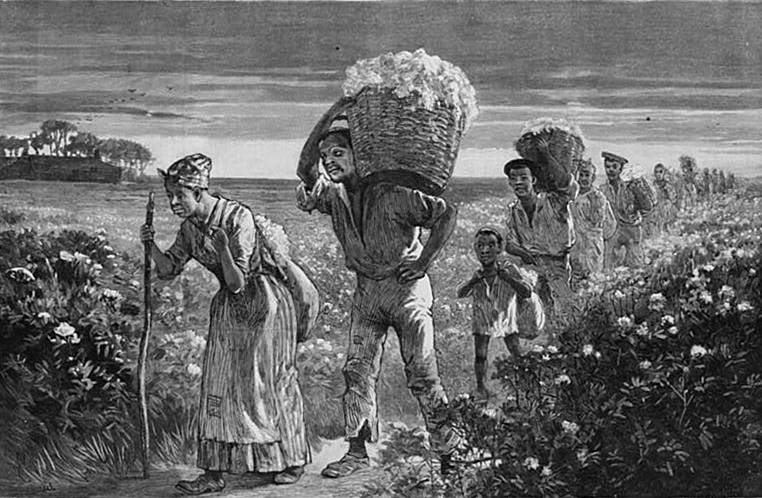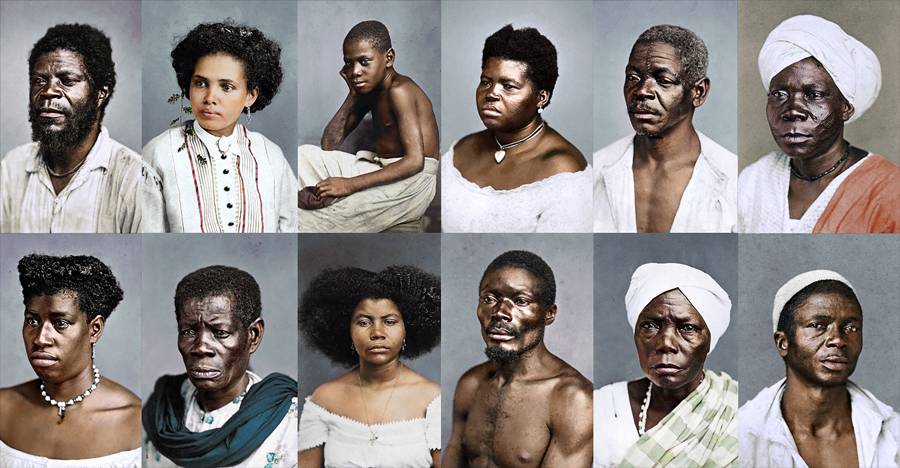When we think of American history, several key points come to mind – the Revolutionary War, the signing of the Declaration of Independence, and the Emancipation Proclamation. However, there is a lesser-known fact about America’s wealth and slavery that are often glossed over: Much of the country’s wealth was built on the backs of slaves.

In this blog post, we will take a closer look at how America’s early wealth was created and the role slavery played in it. We will also examine some of the lasting effects that slavery had on the American economy and society.
The Role of Slavery in the Making of America’s Wealth
A key question in America’s history is how the nation became so prosperous so quickly. A major factor was the development of a thriving slave economy. From the beginning of colonization until the Civil War, slaves were an important source of labor in America. They worked on plantations, in mines and factories, and helped produce crops, minerals, and manufactured goods that made America one of the richest nations in the world. Even after slavery was abolished, racist laws and customs prevented black Americans from fully participating in the economy, making white Americans even richer. In recent years, scholars have begun to reexamine the role of slavery in America’s economic development. While there is still much debate on the subject, it is clear that slavery played an important role in making America the prosperous nation it is today.

America’s economy received a major boost from slavery.

Slave labor was used extensively in agriculture at the time, especially for the production of crops such as tobacco, rice, and cotton. Historians estimate that enslaved Africans accounted for more than 40% of the world’s cotton production by 1860.
The slave trade was also extremely lucrative. It is estimated that between 1600 and 1850, some 12 million Africans were trafficked as slaves to North and South America. For example, in 1791 alone, traders brought slaves worth about $15 million to Haiti.
The influx of slave labor helped lower wages for all workers in the Americas and allowed companies to make higher profits. In addition, slavery had a profound impact on American culture and society. It helped solidify white supremacy as the cornerstone of American society and justified racial discrimination for centuries.
America’s history of wealth and slavery.
The United States has a long history of wealth and slavery. From the beginning of colonization to the Civil War, slaves were an essential part of the American economy. They worked in agriculture, industry, and as domestic servants. After emancipation, many former slaves continued to work in the same industries. However, they did not receive the same wages or working conditions as their white counterparts. This inequality between white and black Americans would persist for generations.

How America’s wealth was built on the backs of slaves
Many American families became wealthy through the labor of slaves. In some cases, entire fortunes were built on slavery. Even today, there are businesses that profit from slave labor. For example, it is estimated that more than 30 million slaves work in the supply chains of some of the world’s largest companies.

The effects of slavery and racism, continue to this day
The effects of slavery and racism are still felt in America today. African Americans continue to face discrimination in education, employment, housing, and health care. They are also more likely to be incarcerated than their white peers. The legacy of slavery and racism has made it difficult for African Americans to accumulate wealth and pass it down from generation to generation.

The legacy of slavery in America
Although slavery was officially abolished with the Emancipation Proclamation in 1863, its legacy continues to reverberate in America today. For example, studies have shown that there is a direct correlation between areas that were once part of the slave trade and today’s levels of poverty and inequality. This is because slaves generally came from regions with lower levels of education and economic development, which made it more difficult for them to fit into American society after they were freed. In addition, racism and discrimination are still major problems in America. African Americans continue to face significant barriers when it comes to education, employment, and income. Recent data show that black households own only about 10% of the wealth of white households – a gap that has actually widened since 2001.
What can be done to address America’s history of wealth and slavery?

There are a number of things that can be done to address America’s history of wealth and slavery. First, it is important to educate ourselves about this history. This includes examining both the brutality of slavery and its economic importance to America. Second, compensation should be paid to the descendants of slaves. This would help address some of the inequalities that exist today between black and white Americans. Finally, efforts should be made to diversify the American economy so that it is no longer so dependent on slave labor.
Conclusion:
Slavery played an important role in shaping the American economy and society. Although it has been abolished for over 150 years, its legacy still impacts African Americans today in the form of poverty and inequality. If we are to create a more just and equitable society, we must first acknowledge the role slavery has played in our nation’s history. Only then can we begin to address its lingering effects on our economy and culture.
References:
- https://www.americanyawp.com/text/04-colonial-society/
- https://montgomeryhistory.org/speakers-bureau/speakers-bureau-topics-complete/
- https://www.archives.gov/publications/prologue/2010/spring/dcslavery.html
- https://www.vera.org/spotlights/restoring-promise
- http://www.americanyawp.com/text/01-the-new-world/
- https://www.loc.gov/rr/mss/ammem.html
Also read our recent articles:
- https://www.itznews.net/buffalo-defense-against-lions/
- https://www.itznews.net/from-claims-of-pogbas-witch-doctor-curse-to-bitter-feud-with-neymar-psg-star-mbappe-breaks-his-silence/
- https://www.itznews.net/meet-the-immortal-jellyfish-a-lifetime-creature/
- https://www.itznews.net/5-ways-your-dog-can-tell-if-you-are-about-to-get-sick/










































